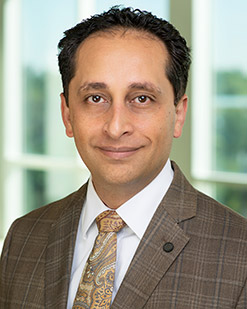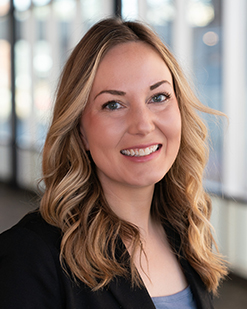Gastroesophageal Reflux Disease (GERD)
This information was reviewed and approved by Neil W. Toribara, MD, PhD (12/15/2022).
Gastroesophageal reflux, or acid reflux, is a backward flow (reflux) of stomach contents into the esophagus. Everybody has some reflux. More than 20% of adults in the U.S. are affected by acid reflux.
The two most common symptoms of acid reflux are heartburn and regurgitation.
- Heartburn feels like a burning pain that may move from your stomach to your abdomen, chest or throat.
- Regurgitation is a sour or bitter-taste from stomach acid that backs up into your throat or mouth.
Abnormal amounts of gastroesophageal reflux can cause gastroesophageal reflux disease (GERD). This occurs when the sphincter of smooth muscle between the esophagus and the stomach does not function properly. This muscle band is called the lower esophageal sphincter (LES).
A physician diagnoses GERD by reviewing your history of signs and symptoms. Tests such as a barium swallow, esophageal pH impedance probe study or endoscopy (EGD) also can help diagnose this condition.
Use these tips to help prevent acid reflux:
- Lose weight. If you are overweight, talk with your doctor about losing weight. Being overweight increases abdominal pressure. Extra weight can push stomach contents up into the esophagus. According to some statistics, approximately 35% of people who are overweight experience heartburn. Exercise can help you trim down. Here are tips to help you move more.
- Quit smoking. Smoking increases your risk of acid reflux because it stimulates the production of stomach acid and nicotine relaxes the lower esophageal sphincter. The LES keeps acid in the stomach and out of your esophagus. When LES pressure is reduced, the acid can more easily creep up and cause heartburn. Your health care provider will have suggestions to help you quit smoking. Learn more about the highly successful National Jewish Health quit program.
- Relax. While stress hasn't been linked directly to heartburn, it is known that stress can lead to behaviors that can trigger heartburn, such as smoking and overeating. Here are some tips for managing stress and learning to relax.
- Limit certain foods and beverages. Citrus and tomato products, strong spices, caffeinated and decaffeinated coffee and tea, carbonated drinks, fatty foods, chocolate, peppermint, spearmint and alcohol can all contribute to acid reflux. Learn more.
- Eat smaller, more frequent meals. A full stomach from a large meal can put extra pressure on the LES. This increases the chance that some of this food will reflux into the esophagus. Learn more.
- Avoid food or liquids for 2–3 hours before bedtime. Lying down with a full stomach can cause stomach contents to press harder against the LES. This increases the chances reflux. Learn more.
- Elevate the head of your bed 6-8 inches. Lying flat will press the stomach's contents against the LES and can lead to reflux. Having your head higher than your stomach allows gravity to help reduce this pressure. Place bricks, blocks or anything that's sturdy securely under the legs at the head of your bed. You can also use a wedge-shaped pillow to elevate your head. Learn more.
- Avoid bending forward at the waist. This will squeeze the stomach, forcing food up against the LES and increase the chance of acid reflux. Learn more.
- Avoid wearing tight-fitting clothing. Clothing that fits tightly around the abdomen will squeeze the stomach, forcing food up against the LES and causing food to reflux into the esophagus. Clothing that can cause problems includes tight-fitting belts and slenderizing undergarments. Learn more.
More about Reflux and GERD
Our Specialists
-

Arash Babaei, MD
-

Nicole Borroff, RDN, CLC
-

Ronina A. Covar, MD
-

John Goff, MD
-

Elizabeth Gyorkos, PA-C
-

Jeffrey B. King, MD
-

Elizabeth Klopper, MPH, MMSc, PA-C
-

Michelle MacDonald, MS, RDN, CDE
-

Pranav Periyalwar, MD, FACG, FASGE
-

Neil W. Toribara, MD, PhD
-

Chandler Tucker, RDN
-

Kathleen Yan, MD
 Programs and Services
Programs and Services
Thousands of patients come to us from around the world to team with our expert physicians and researchers and seek treatment for respiratory, cardiac, immune and related conditions. Search our treatment programs.
 Clinical Trials
Clinical Trials
For more than 100 years, National Jewish Health has been committed to finding new treatments and cures for diseases. Search our clinical trials.
